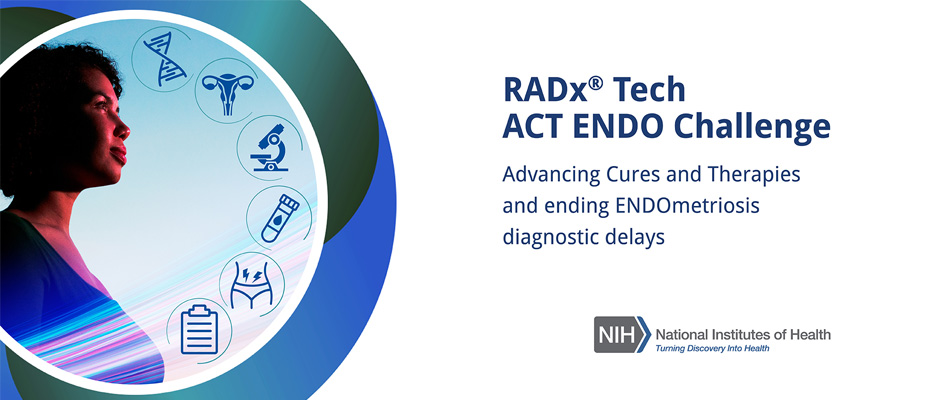
The National Institutes of Health has put $3 million in cash up for grabs in the RADx Tech ACT ENDO Challenge.
RADx—Rapid Acceleration of Diagnostics—is an NIH initiative designed to “speed innovation in the development, commercialization, and implementation of technologies” for various diseases. In this case, the goal is to find innovations that will “shorten the time to diagnosis, eliminate the invasiveness of current techniques, and/or improve accessibility, safety, convenience and costs of diagnosis” for endometriosis.
The first step in this two-year challenge will be from 11 A.M. to noon EDT on Aug. 28, when interested participants can join an informational webinar on the competition.
The Eunice Kennedy Shriver National Institute of Child Health and Human Development and the National Institute of Biomedical Imaging and Bioengineering are leading the challenge together.
“Endometriosis is one of the most common gynecological diseases, but it can take up to 10 years to get a diagnosis,” Diana W. Bianchi, M.D., NICHD director, stated in an NIH press release. “The goal of this challenge is to make a meaningful impact for the millions—roughly 10 percent globally—of reproductive-age women and girls who have endometriosis.”
According to the NIH, “The ACT ENDO Challenge seeks innovative and non-invasive solutions, such as imaging technologies, in vitro diagnostic devices, clinical laboratory tests, wearable devices, smartphone-enabled diagnostic tools, integrated sensing technologies and digital health platforms. Submissions will be evaluated using the RADx Tech ‘innovation funnel’ approach, which compresses the technology development timeline by using expert teams to simultaneously address scientific, technical, regulatory, clinical and commercialization requirements across milestone-based stages.”
Dan Martin, MD, executive and medical director of EndoFound, said NIH’s support of the accelerated development of noninvasive technologies is a welcomed addition to the awareness, diagnosis, and care of endometriosis.
“The goal of making a meaningful impact on the millions of women and girls with endometriosis adds to our hope for the future,” Dr. Martin said. “The ability to make a nonsurgical diagnosis can also help a large segment of the population overcome the social and economic disadvantages they face.”
The RADx challenge is scheduled to conclude in March 2026.
The Phase I submission deadline is Oct. 11, 2024. Judging will be in December 2024, with up to eight semifinalists chosen to advance to Phase II.
Phase II will feature a demonstration and presentation event in January 2025. Up to four finalists will be announced two months later. Each winner will receive $100,000 and advance to Phase III.
Phase III will begin in March 2025. Each of the finalists will work with the RADx Tech Project Team “to assess the prototype technology, identify key risk factors for accelerated development and establish strategies to mitigate these risks.” Finalists will compete for a $250,000 milestone prize during the competition, and $100,000 to $600,000 prizes will be awarded to each winner in March 2026.
The NIH has emphasized endometriosis research and care significantly in the past year. Last fall, EndoFound ambassador Olivia Culpo appeared on the cover of the prestigious NIH MedlinePlus magazine. This past week, EndoFound ambassador and EndoTV host Diana Falzone participated in an NIH roundtable discussion on the disease.
Information on how to join the challenge can be found at www.challenge.gov/?challenge=radx-tech-act-endo.
To register for the informational webinar on Aug. 28, visit www.challenge.gov/?challenge=radx-tech-act-endo&tab=faq.









